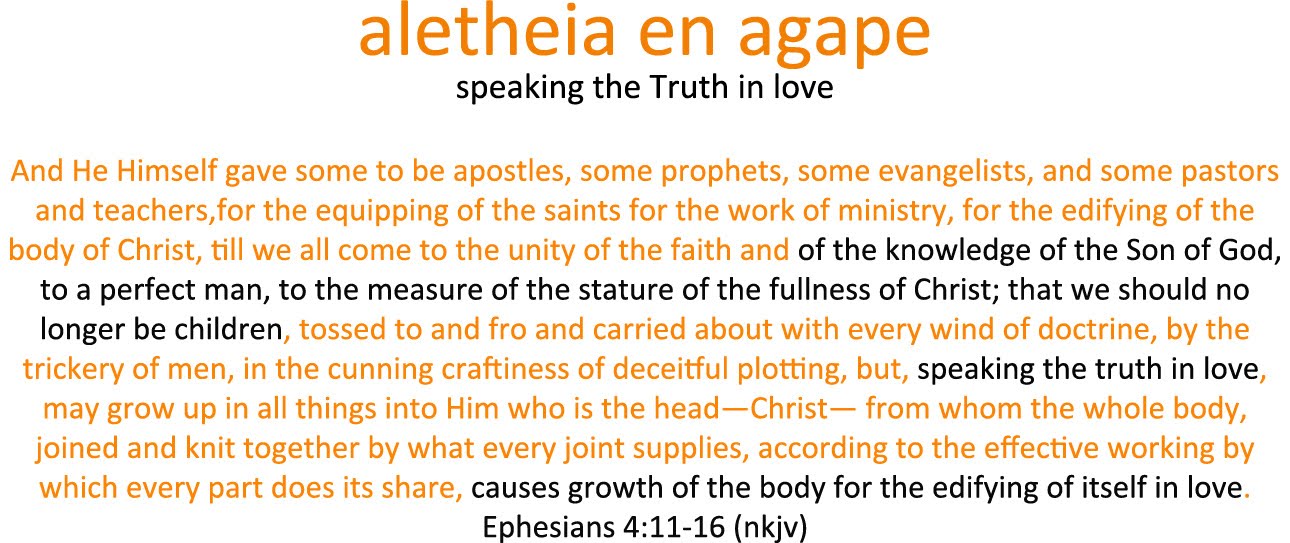Understanding Rhemas
http://billgothard.com/bill/teaching/rhemas/
“Man shall not live by bread alone, but by every word [rhema] that proceedeth out of the mouth of God” (Matthew 4:4). Jesus also stated, “The words [rhema] that I speak unto you, they are spirit, and they are life” (John 6:63).
This understanding of rhema has allowed me to apply the promise of John 15:7–8 and experience marvelous results from it. “If ye abide in me, and my words [rhema] abide in you, ye shall ask what ye will, and it shall be done unto you. Herein is my Father glorified, that ye bear much fruit; so shall ye be my disciples.”
To read the entire article, click HERE or go to
http://billgothard.com/bill/teaching/rhemas/
In the New Testament, the Greek words logos and rhema are both translated word. However, they are not synonyms for the same idea, but each have precise Biblical meanings, as do all words in Scripture. Logos is generally used to refer to the totality of the Word of God as well as the person of Jesus Christ, Who is the living Logos. The following references illustrate this: “The seed is the Word [logos] of God” (Luke 8:11). “Holding forth the word [logos] of life” (Philippians 2:16). “Rightly dividing the word [logos] of truth” (II Timothy 2:15). “For the word [logos] of God is quick, and powerful” (Hebrews 4:12). “Being born again, not of corruptible seed, but of incorruptible, by the word [logos] of God” (I Peter 1:23). “As newborn babes, desire the sincere milk of the word [logikos, from logos], that ye may grow thereby” (I Peter 2:2).
Scripture generally uses the Greek word rhema to refer to the spoken word given by a living voice and is used to describe particular messages that were given to individuals for their personal application. The following passages are examples of this:
* Jesus told Peter he would deny Him—“Peter remembered the word [rhema] of Jesus, which said unto him, Before the cock crow, thou shalt deny me thrice” (Matthew 26:75).
* The angel told Mary that she would have a child—“Mary said, Behold the handmaid of the Lord; be it unto me according to thy word [rhema]” (Luke 1:38).
* Simeon was told he would see Christ before he died—“Now lettest thou thy servant depart in peace, according to thy word [rhema]” (Luke 2:29).
* God gave John the message he was to preach as a forerunner to Christ—“The word [rhema] of God came unto John” (Luke 3:2).
* Jesus told Peter where to cast his nets—“Master, we have toiled all the night, and have taken nothing: nevertheless at thy word [rhema] I will let down the net” (Luke 5:5).
* God reminded Peter of His Word—“Then remembered I the word [rhema] of the Lord, how that he said, John indeed baptized with water; but ye shall be baptized with the Holy Ghost” (Acts 11:16).
Those who hear the Gospel receive a special message from the Holy Spirit, for no man can call Jesus Lord, but by the Holy Spirit. “No man can say that Jesus is the Lord, but by the Holy Ghost” (I Corinthians 12:3). Therefore, it is appropriate for the message of salvation to be a rhema. “The word [rhema] is nigh thee, even in thy mouth, and in thy heart: that is, the word [rhema] of faith, which we preach; That if thou shalt confess with thy mouth the Lord Jesus, and shalt believe in thine heart that God hath raised him from the dead, thou shalt be saved…. So then faith cometh by hearing, and hearing by the word [rhema] of God” (Romans 10:8–9, 17; see also Acts 5:20).
Rhemas are not separate from Scripture, but a part of the whole of God’s Word. Every word of God is inspired, and “all scripture is given by inspiration of God, and is profitable for doctrine, for reproof, for correction, for instruction in righteousness” (II Timothy 3:16). It is the Holy Spirit Who illuminates particular Scriptures for application in a daily walk with the Lord.
The words of Jesus are significant on this point. “Man shall not live by bread alone, but by every word [rhema] that proceedeth out of the mouth of God” (Matthew 4:4). Jesus also stated, “The words [rhema] that I speak unto you, they are spirit, and they are life” (John 6:63).
This understanding of rhema has allowed me to apply the promise of John 15:7–8 and experience marvelous results from it. “If ye abide in me, and my words [rhema] abide in you, ye shall ask what ye will, and it shall be done unto you. Herein is my Father glorified, that ye bear much fruit; so shall ye be my disciples.”
Vine’s Complete Expository Dictionary of Old and New Testament Words states the following on page 683. “The significance of rhema (as distinct from logos) is exemplified in the injunction to take ‘the sword of the Spirit, which is the word of God,’ (Eph. 6:17); here, the reference is not to the whole Bible as such, but to the individual scripture which the Spirit brings to our remembrance for use in time of need, a prerequisite being the regular storing of the mind with Scripture.” (Read the full definition online from Vine’s Expository DictionaryOffsite Link.)



